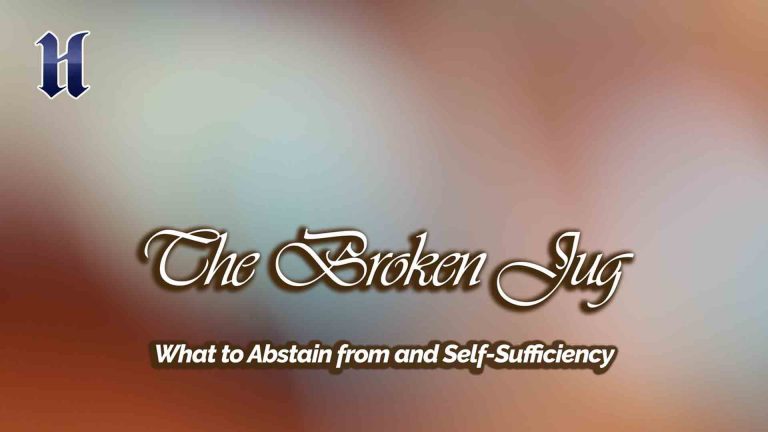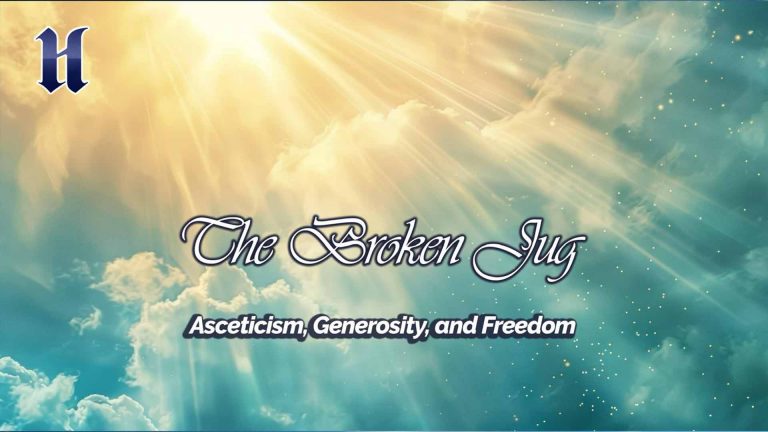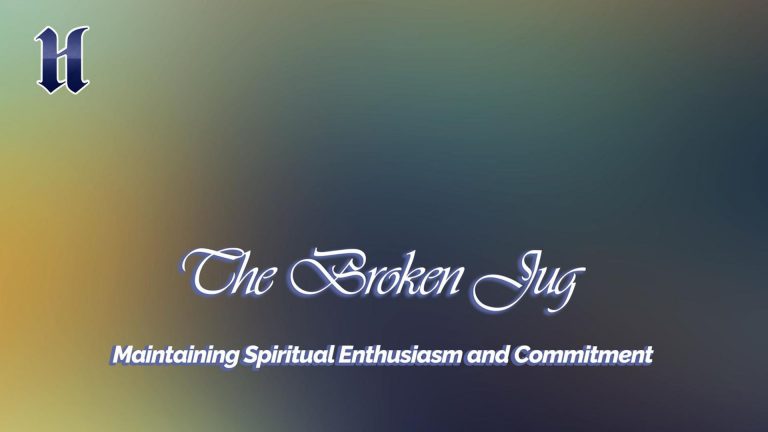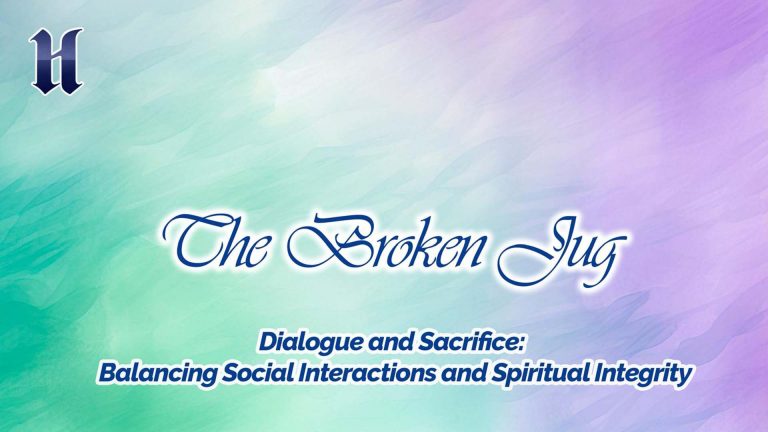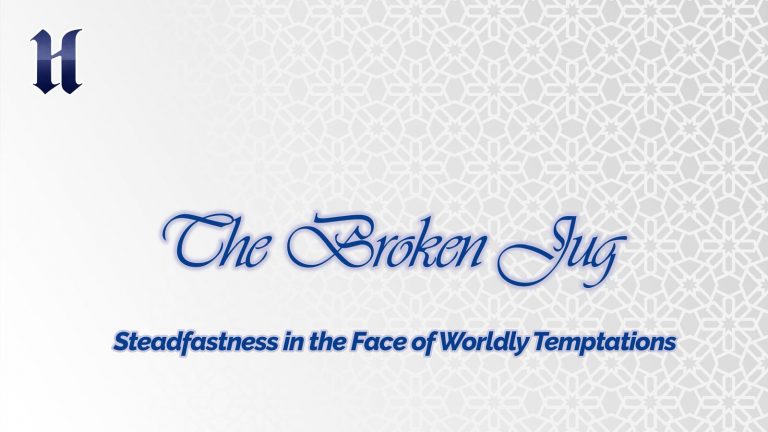Both in the individual and societal realms, changes and transformations follow one another. Some of these changes lead towards progress, development, growth, while others decay, deteriorate, and vanish. Some are swept away in storms, carried like logs in floods, and decay and vanish like fallen leaves on the ground. Then there are those that, like seeds falling to the soil, sprout, reach for the sky, branch out into the heavens, and ultimately bear fruit. In some, change leads towards goodness and beauty, while in others, it heads towards evil and corruption. If you were to cast your gaze around, you would find countless examples from both categories.
In these positive and negative changes, individuals, along with their actions, ultimately proceed towards the Almighty, Transcendent Being, free from change, transformation, shapes, and forms. What matters in this journey is for human beings to continually change towards goodness and beauty, and to be resolute and determined in approaching Him with each change.
The dedicated souls who have made it their mission to guide humanity back to the path of humanity by conveying the values it needs continue to strive tirelessly in the direction of this noble goal. In return, they harbor no expectations other than earning the pleasure of Allah. Even if they were to move mountains like Farhad[1] to achieve their noble goal, they do not expect any reward in return; they remain steadfast in self-sufficiency, humility, and self-effacement. All their actions and endeavors are aimed at once again conveying the secrets of “the most beautiful creation” (Ahsen-u Taqweem) to souls. They live not for themselves but for others. As they prepare to depart from this world, they are ready to account for everything they leave behind. The most essential characteristic of dedicating oneself to a lofty cause is indeed this. This is the path of the Prophets and their faithful followers.
As expressed in a hadith, “whoever possesses humility and self-effacement, living among people as an ordinary person, Allah elevates them as they humble themselves. Conversely, those who fall into the trap of arrogance, Allah debases them as they seek to exalt themselves.”[2] Those who succumb to such a complex [of pride and arrogance] become addicted to applause and admiration. When they enter a room, they expect everyone to stand in awe of them, and when they speak, they long for a thunderous round of applause that leaves hands sore. In reality, these individuals are small in terms of their true character, which is why they strive to appear significant. This condition is a manifestation of an inferiority complex.
Arrogance is the impurity of impure hearts. The Prophet Muhammad (peace be upon him) has stated that even the slightest trace of arrogance in one’s heart will prevent them from entering Paradise.[3] This means that considering oneself great is not only one of the factors that obstruct belief but also a dreadful element that can push a person who has entered the circle of faith outside of it. Arrogance, looking down on others, and condescension are such grave sins that they can distance a person from the pure atmosphere of Islam. Greatness belongs exclusively to Allah. The caller to pray (muezzin) proclaim “Allahu Akbar” (The Great is Allah) from the minarets five times a day, reminding us of this truth. In the presence of the Infinitely Great, it is our role as humans to be infinitely humble.
Qarun[4] was from the people of Prophet Moses (peace be upon him). He relied on his own intellect, insight, shrewdness, and wealth and, as a result, was swallowed by the earth. Samiri, who boasted with his knowledge and wisdom, was condemned to live alone in the desert.[5] Pharaoh, whose power and might had blinded him, drowned in the sea along with his people. Just as he ruined his own world, he also destroyed the world of those foolishly following him. When a person does not recognize their limits, does not submit to their Creator, and cannot see the true source of blessings, then blessings like power, wealth, and knowledge can become deadly poison for them.
Indeed, power and strength, wealth and riches, positions and ranks, success and achievements, in a way, are like drugs. Once a person’s heart falls for their allure, they slowly and unwittingly begin to numb and poison themselves. Eventually, there comes a day when they are completely paralyzed, and by then, it is too late.
Therefore, as a person’s power and strength, position and status, knowledge and wisdom, wealth and riches increase, their humility and self-effacement should also grow. This way, they can protect themselves from the deadly poison of these blessings. Human beings should rely not on their limited power and resources but on the infinite power of Allah. They should not be preoccupied with the stars on their shoulder straps or the titles bestowed upon them by people, by the public. As their power and strength increase, they should see themselves as more helpless and impoverished before Allah. Throughout history, the downfall of all pharaohs and tyrants was due to their pride and arrogance. They first exalted themselves, then found themselves beneath their imaginary grandeur, and were crushed. They not only suffered themselves but also led the masses who blindly followed them to destruction and catastrophe.
As it is known, the fundamental principles of the Risale-i Nur teachings are founded on ‘humility, neediness, enthusiasm, and gratitude’. Regardless of the resources and positions one may have, one should never deviate from the perspective of “Everyone is virtuous, and I am flawed; everyone is wheat, and I am chaff.” They should always see themselves as an ordinary servant of Allah. Even if they soar through the skies like a bird, they must stay far from any sense of superiority. They should be content with being an ordinary person among others. The love and enthusiasm they possess should be considered the greatest reward and gift bestowed by God to their effort and endeavor, and, crowned with gratitude, they should not aspire to attain any other titles beyond this.
If a person truly wishes to shut the doors to all forms of pride and arrogance, they should even consider being praised as a form of associating partners with Allah. They should feel repulsed by the idea of attributing the favors and graces of Allah to themselves. They should view the praise directed towards them as if it were an insult. The way to close the doors to heart diseases like arrogance, pride, vanity, and hypocrisy lies in this approach. If a person fails to shut these doors against these maladies, the doors to Paradise will not open for them. Even if they think they are walking on the path to Paradise, even if they do not leave the mosque or leave their prayers, if they cannot rid themselves of arrogance, if they constantly express hidden or overt egoism when they speak, then the paths leading to Truth and righteousness will be closed to them. This, God forbid, could lead to a disastrous end for them. May the Infinite Mercy protect us from such unfortunate outcomes.
Note: This text is derived from Sohbets (conversations) held on October 25, 2012, and November 29, 2015.
[1] Farhad is a renowned character in Central Asian and Middle Eastern literature, deeply in love with Shirin. He is tasked by the King to carve a staircase into a mountain, with the promise that he will be granted Shirin’s hand in marriage if he succeeds.
[2] Ahmed ibn Hanbal, Musnad 18/250; Taberani, al-Mu’jam al-Awsat 5/139.
[3] Muslim, Faith 147: “Whoever has a mustard seed’s weight of pride (arrogance) in his heart, shall not be admitted into Paradise…”
[4] Korah, known in Hebrew, was indeed wealthy but became excessively arrogant due to his pride and ignorance. He attributed his wealth to his own knowledge rather than acknowledging it as a gift from God.
[5] “Samiri” or “the Samiri” is a term used in the Qur’an to denote a disobedient follower of Moses (peace be upon him) who was responsible for fashioning the golden calf and trying to lead the Hebrews into idolatry.


